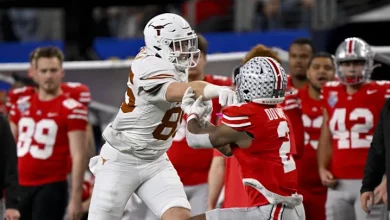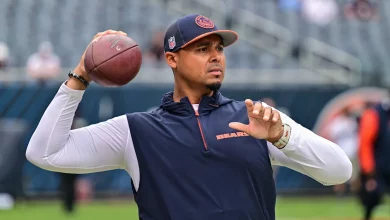Kane Wommack’s Motivation After Alabama’s 2024 Loss: A Commitment to Excellence

In the world of college football, losses often serve as pivotal moments, shaping the trajectory of a team’s season and the mindset of its coaching staff. For Alabama’s defensive coordinator, Kane Wommack, the Crimson Tide’s unexpected defeat to Vanderbilt in 2024 became a catalyst for reflection, growth, and an unwavering commitment to excellence.
The Vanderbilt Setback: A Wake-Up Call
The Alabama defense, under Wommack’s guidance, had been a formidable force throughout the season. However, the matchup against Vanderbilt exposed vulnerabilities that had previously been masked. The Commodores’ offense, led by quarterback Diego Pavia, employed a triple-option scheme that caught the Tide off guard. Vanderbilt converted 12 of 18 third-down attempts, maintaining possession for over 42 minutes and accumulating 418 total yards .
Wommack took full responsibility for the defensive shortcomings, emphasizing that the failure to execute fundamental aspects of the game fell squarely on his shoulders as the defensive coordinator. He acknowledged the need for his players to perform at their highest level and recognized that the loss was a direct result of not meeting those expectations .
Turning Adversity into Motivation
Rather than allowing the defeat to demoralize the team, Wommack used it as a motivational tool. He believed that such setbacks were essential reminders of the standards that Alabama football upholds. In subsequent practices and meetings, Wommack emphasized the importance of consistency, situational awareness, and the relentless pursuit of excellence.
His approach was not merely about correcting mistakes but about instilling a mindset that viewed challenges as opportunities for growth. Wommack’s leadership became a beacon for the team, guiding them through adversity and reinforcing the values that define Alabama football.
The Road Ahead: Building Resilience
In the aftermath of the Vanderbilt loss, Wommack focused on addressing the specific areas that contributed to the defeat. This included enhancing the defense’s ability to adapt to unconventional offensive schemes and improving performance in critical third-down situations. He also worked on refining communication and execution during high-pressure moments, ensuring that the defense could respond effectively to any challenge.
By concentrating on these areas, Wommack aimed to build a more resilient defense capable of withstanding the rigors of the SEC and competing at the highest level. His commitment to continuous improvement underscored his belief that every setback was an opportunity to come back stronger.
Conclusion: A Testament to Leadership and Growth
Kane Wommack’s response to Alabama’s 2024 loss to Vanderbilt exemplifies the qualities of effective leadership and the power of resilience. By embracing the defeat as a learning experience and using it to fuel the team’s motivation, Wommack demonstrated that true leadership is not about avoiding failure but about how one responds to it. His actions reinforced the notion that setbacks are not the end but rather stepping stones toward greater success.
As Alabama continued its season, the lessons learned from that loss became integral to the team’s development, proving that sometimes, the most significant victories come not from triumphs but from the strength to overcome adversity.









